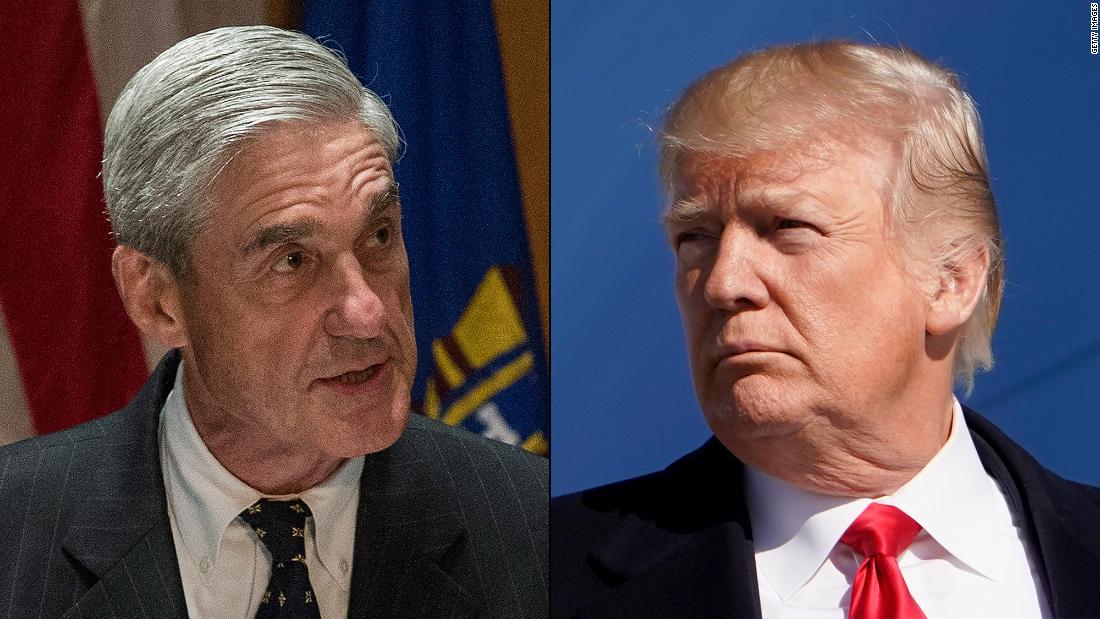[ad_1]
Legal experts say that while Trump’s legal team still has other arguments to make on why he should not have to sit down with the special counsel, the door on challenging Mueller’s legitimacy appears to be nearly closed.
Miller had argued that Mueller was not nominated by the President and confirmed by the Senate and therefore was unconstitutionally appointed as a “principal officer.” Howell found the claim unpersuasive in light of the Supreme Court’s decision in Morrison v. Olson, which upheld the constitutionality of provisions of a now-defunct federal statute creating an independent counsel, and subsequent court decisions. Instead, Howell found Mueller to be an “inferior officer” under the supervision of deputy attorney general Rod Rosenstein, who took up the oversight of the Russia investigation after Attorney General Jeff Sessions recused himself from it last year.
“His appointment, without presidential appointment and senatorial confirmation, thus did not violate the Appointments Clause,” Howell wrote.
Miller also claimed that Sessions’ “mere recusal” from the Russia investigation didn’t make Rosenstein the acting attorney general for purposes of tapping Mueller to lead the probe. But Howell didn’t buy that argument either, pointing to the fact that various federal statutes allow the attorney general to delegate the authority to appoint a special counsel to the deputy attorney general.
“Multiple statutes authorize the Special Counsel’s appointment, and the official who appointed the Special Counsel had power to do so,” Howell concluded, underscoring a point previously acknowledged by several prominent legal voices.
Why does this matter for Trump’s defense?
The President has railed against Mueller’s appointment since day one — but his tirades on Twitter have gone into overdrive in recent weeks.
In early June, he proclaimed: “The appointment of the Special Counsel is totally UNCONSTITUTIONAL!”
After Mueller’s appointment by Rosenstein, a Trump appointee, the Department of Justice determined there was no ethics conflict for Mueller in the investigation.
If Mueller cannot reach an agreement with Trump’s lawyers for a voluntary interview with the President, then a grand jury subpoena to force Trump to talk would almost certainly trigger fierce resistance from his defense team.
But some legal experts say Howell’s decision casts significant doubt on any effort to successfully challenge the legality of Mueller’s appointment.
“Judge Howell’s comprehensive opinion denying the challenge to the special counsel regulation is no surprise. Republicans and Democrats alike for two decades have said the same — the argument to the contrary is well out of the constitutional mainstream,” said Neal Katyal, who served as acting solicitor general in the Obama administration and helped draft the special counsel regulations in the 1990s.
“President Trump can try other arguments in the months to come, but this one is going nowhere,” Katyal added.
Trump’s lawyers have already asserted that a sitting president cannot be subpoenaed, but that’s an unsettled legal issue, and it is unclear whether a court would agree.
“Trump can try to argue that presidents are not amenable to subpoena under our Constitution, and that even if they are, the subpoena must be very narrow in scope,” Katyal said. “Those are difficult arguments to make, but not impossible ones.”
[ad_2]
Source link

